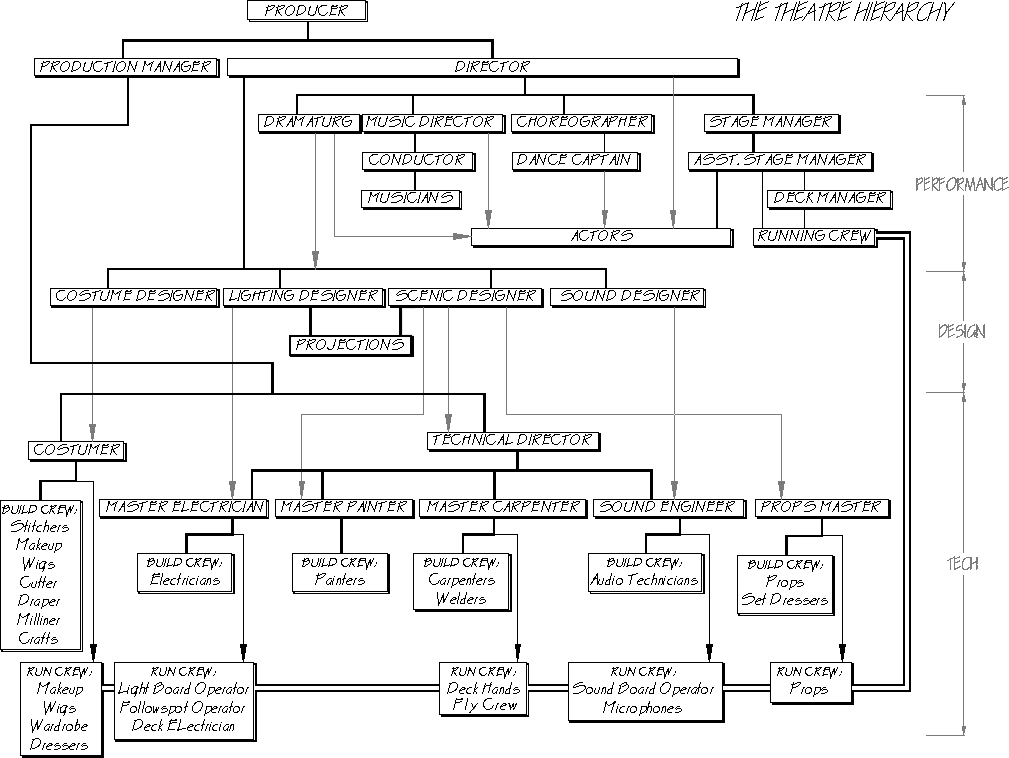I just need to say – that theater is an industry. It has specialized jobs, degrees, training, tracts, fields, and experts LIKE ANY PROFESSIONAL INDUSTRY. When you think you “know all about theater” because you know someone who was once on Broadway or because you have seen a lot of Broadway shows, that’s like me saying I know about the legal field because I’m friends with an attorney who once argued before a federal judge, and because I have watched a lot of Law and Order. Or it’s like saying you know how to run a restaurant because you have a friend who’s an award winning chef, and you eat at a lot of the best restaurants. The smartest people and the most competent leaders are wise enough and humble enough know when they don’t know about something – and are able to recognize that there are experts and specialists with a much deeper knowledge and experience base than their own, and that these are the people who should be brought in to inform decisions on funding and hiring – within a field which is vast and complicated.
There are Master’s Degrees in Theater Producing and Arts Administration, there are PhD’s in teaching Theater Pedagogy, there are seasoned Executive Producers who have produced professional theater in multiple cities, Artistic Directors who have led creative teams across the country, Playwrights with international awards and experience, Technical Directors who measure for every engineering feat you see on stage, Lighting Designers who allow you to literally “see” the stage and also inform “what” you should see. (Sigh.) It’s such a deep disrespect to assume that it’s all the same, and that it’s simple, and that one particular artist should or could understand or advise an entire complicated and interconnected network just because the word Broadway is connected to that person.
Oh, and Broadway is only a teeny tiny sliver of professional theater in this country, and it’s basically the only for-profit theater left. It’s a big deal and I’m grateful for Broadway, and also it’s not a big deal at all. Most professional theater in this country is NOT-for-profit and NOT on Broadway and THIS is the lifeblood of the theater INDUSTRY. It’s from this wellspring of people and talent and heart and discipline and training and education and expertise, that plays are born, developed and produced and then maybe headed sometimes to Broadway. A Ballerina is important in the ballet, but she doesn’t necessarily understand the work of the Development Director, or the Director of Outreach and Communications, or the work of the Stage Manager – just as none of these Directors nor the Stage Manager can likely leap into a (very good) tour jeté.
And this is no disrespect on the multi-hyphenates within our field, I am a proud multi-hyphenate; as a writer-director-producer-artistic director. However, there is an abundance of folks in the funding and arts presenting worlds that don’t seem to understand the complexity of roles and responsibilities within the professional theater industry. And it’s because I love my industry, and I because I desperately want to see it survive and thrive, that I write this and say that – it is critical that we have the correct and capable people (or groups of people!) in key leadership roles for theater presenting, advising and funding right now. Please respect what you don’t know. Please ask what is the job I am hiring for? Do you need an actor to perform onstage and connect with audiences? Or do you need a producer and arts leader to build creative teams and connect communities? Hire the right people with the appropriate training and experience for the job. Respect the multiple professional fields and jobs (and styles and genres, too, please) within a sophisticated and complex professional industry. Please. This is how you respect and lift up theater as a necessary art form, support professional artists, and drive arts economies.
3 common thinking traps and how to avoid them, according to a Yale psychologist
Theatre Hierarchy – Jobs in the Theatre
http://theatregeekery.blogspot.com/2018/08/theatre-hierarchy-jobs-in-theatre.html
Complete list of jobs in the theater industry
